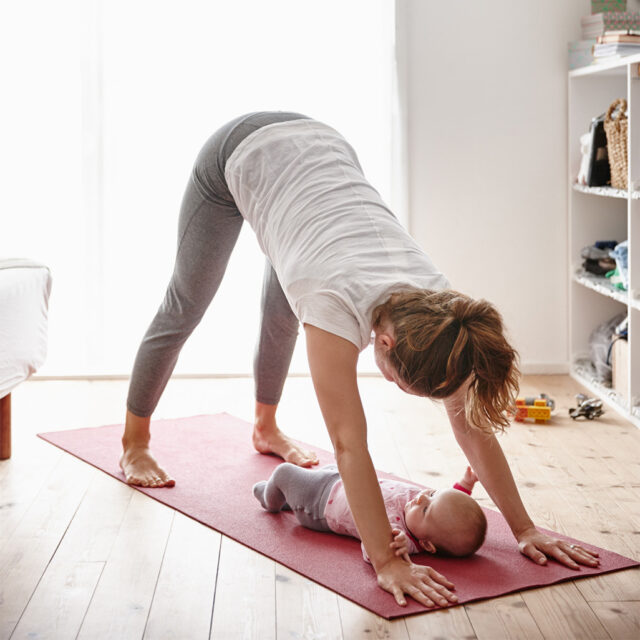The list of postpartum women’s health and fitness concerns is growing, from managing hormonal changes to adapting your routine to your baby’s requirements, understanding its screams, rethinking your connection with your spouse, and managing work if you wish to. How to work on them is given below.
Being a mother is a blessing, and there are few experiences that can equal to holding your newborn child for the first time. Being a new mom is like venturing into unknown terrain, and the hormonal volatility, stress associated with caring for a baby, established cultural expectations, and the sense that you don’t fully understand your body may be overwhelming and draining.
Physically and mentally, giving birth is a difficult process, and after you have a child, you are inclined to put the infant before yourself. In spite of the fact that motherhood is one of the most wonderful experiences a woman may have in her lifetime, a mother can anticipate to go through some transitory and moderate bodily changes after giving birth. Serious health problems are uncommon, giving birth vaginally is a major physical accomplishment, and having a c-section is equivalent to having surgery.
- Body-wide healing – The most important fitness advice for the postpartum time is to take it easy and recuperate. It’s crucial for the body to heal after birth, thus it’s advised to take 15–30 days off completely.
- Eat a healthy, balanced diet. At this period, balanced nutrition is crucial since the mother will be nursing and will likely have frequent hunger pangs.
- Mild exercise is an excellent and safe strategy to enhance the physical, emotional, and psychological health of expectant moms. Obesity, postpartum depression, and metabolic diseases are all reduced by it. Getting enough exercise also relieves stress, improves sleep, and lessens postpartum depression symptoms.
- Know the signs of postpartum depression – A mother’s new, constrained, and exhausted lifestyle makes postpartum depression fairly prevalent. Your mental health may be seriously impacted by the difficulties of holding a brand-new, small life in your arms that is entirely dependent on you for their growth, as well as by some brand-new pains and weight increases. When required, new mothers shouldn’t be afraid to ask for assistance. Don’t attempt to be a hero and do everything by yourself. It’s okay! Request support and assistance from your family.







